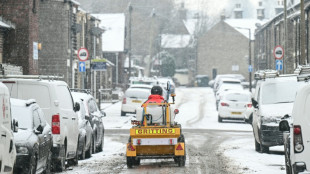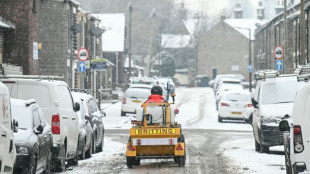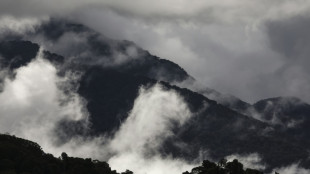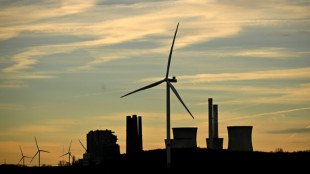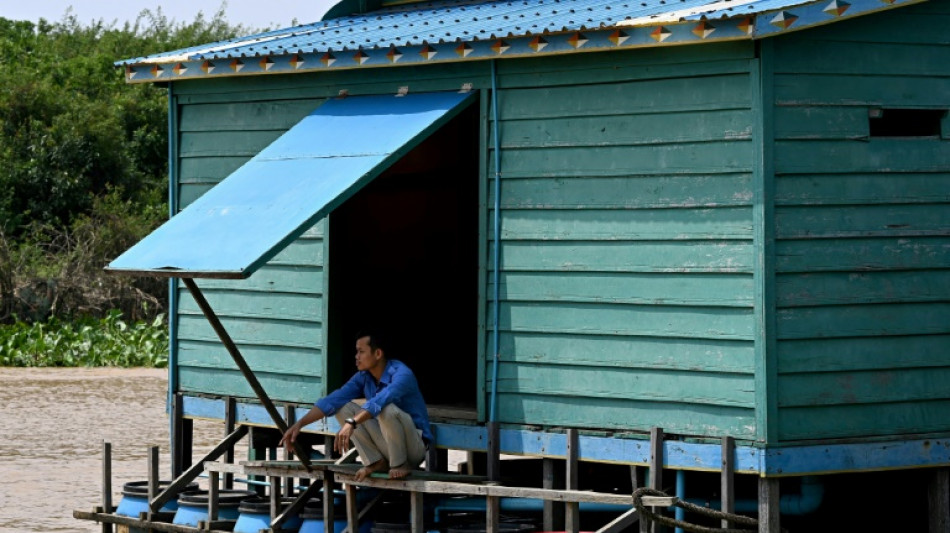
-
 India women's historic cricket World Cup win fires up T20 league
India women's historic cricket World Cup win fires up T20 league
-
South Korea's Lee says urged Xi to help curb North's nukes

-
 England's Bethell hits maiden Test century as family watch on
England's Bethell hits maiden Test century as family watch on
-
US car market expected to moderate in 2026

-
 Swiatek, Gauff ease to United Cup victories
Swiatek, Gauff ease to United Cup victories
-
Strasbourg face pitfalls of multi-club system as Chelsea take Rosenior

-
 Bethell stands tall as England 174-3 in final Test, nine behind
Bethell stands tall as England 174-3 in final Test, nine behind
-
Ex-CIA agent convicted of spying for Soviets dies in prison

-
 James, Doncic carry Lakers past Pelicans
James, Doncic carry Lakers past Pelicans
-
Vietnamese caught in Japan's illegal worker crackdown

-
 Nostalgia and new fans as Tamagotchi turns 30
Nostalgia and new fans as Tamagotchi turns 30
-
Oil extends losses as Trump flags Venezuela shipments, stocks wobble

-
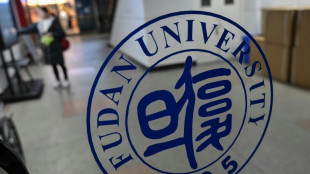 Overseas scholars drawn to China's scientific clout, funding
Overseas scholars drawn to China's scientific clout, funding
-
From music to mind reading: AI startups bet on earbuds

-
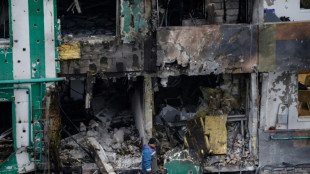 'Of course it's not safe': small city in Russia tries to shrug off war
'Of course it's not safe': small city in Russia tries to shrug off war
-
'Simple' goodbye to Bardot lined up in Saint-Tropez

-
 England lose Crawley as they battle to save final Ashes Test
England lose Crawley as they battle to save final Ashes Test
-
Nvidia CEO praises robots as 'AI immigrants'
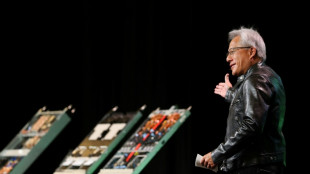
-
 Talks on Ukraine guarantees to continue after Paris 'progress'
Talks on Ukraine guarantees to continue after Paris 'progress'
-
WELT Unveils the World's First "AI-Combo Drug" at CES 2026

-
 AI, outdated visuals fuel misinformation after Maduro capture
AI, outdated visuals fuel misinformation after Maduro capture
-
John Harbaugh fired by Ravens after 18 seasons

-
 Jays and Astros hope to match Dodgers' Japan success
Jays and Astros hope to match Dodgers' Japan success
-
Under-fire Frank claims support of Tottenham hierarchy

-
 Fletcher asked for Ferguson's advice before taking Man Utd interim role
Fletcher asked for Ferguson's advice before taking Man Utd interim role
-
Juventus bounce back in Serie A as Roma, Como in Champions League hunt

-
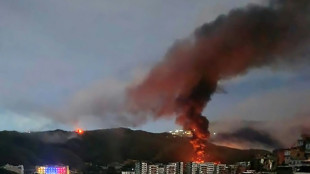 New Venezuela leader says 'no foreign power' running country
New Venezuela leader says 'no foreign power' running country
-
NBA Bulls sign Japanese guard Kawamura

-
 Rubio was called a sell-out, then he won on Venezuela
Rubio was called a sell-out, then he won on Venezuela
-
Relief mixed with fear as Venezuelans cross into Colombia
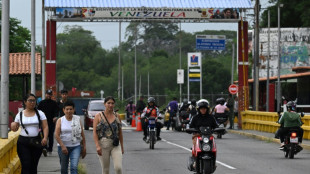
-
 Nine dead in clashes between Syria govt, Kurdish forces in Aleppo
Nine dead in clashes between Syria govt, Kurdish forces in Aleppo
-
Forest boost survival bid to leave West Ham in turmoil

-
 Boulbina stunner takes Algeria through, Diallo sparkles for I. Coast
Boulbina stunner takes Algeria through, Diallo sparkles for I. Coast
-
Trump considering military options to acquire Greenland

-
 Diallo stars as Ivory Coast set up Egypt showdown in AFCON
Diallo stars as Ivory Coast set up Egypt showdown in AFCON
-
Teen killed in anti-conscription protest in Jerusalem

-
 Diallo stars as Ivory Coast set up Egyptsh owdown in AFCON
Diallo stars as Ivory Coast set up Egyptsh owdown in AFCON
-
Black Caps go spin heavy for T20 World Cup campaign

-
 Brazil oil drilling near Amazon halted over 'fluid leak'
Brazil oil drilling near Amazon halted over 'fluid leak'
-
Western allies agree Ukraine guarantees after Paris 'progress'

-
 DR Congo's human statue becomes AFCON's most famous fan
DR Congo's human statue becomes AFCON's most famous fan
-
Boulbina extra-time stunner takes Algeria through to AFCON quarter-finals

-
 Doncic, Giannis lead NBA All-Star voting
Doncic, Giannis lead NBA All-Star voting
-
NASCAR commissioner Phelps steps down

-
 Domen Prevc secures Four Hills ski jump title to emulate brother
Domen Prevc secures Four Hills ski jump title to emulate brother
-
Fletcher says Man Utd coaching job was not in 'wildest dreams'

-
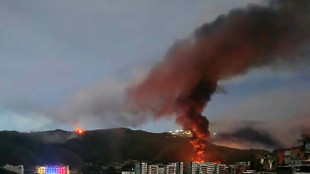 US forces killed 55 Venezuelan, Cuban military personnel in Maduro raid: tolls
US forces killed 55 Venezuelan, Cuban military personnel in Maduro raid: tolls
-
Maduro lawyer previously defended WikiLeaks' Julian Assange

-
 O'Neill not sure he has 'energy' for long Celtic stay
O'Neill not sure he has 'energy' for long Celtic stay
-
Como sweep past Pisa to go fourth in Serie A


'Floating toilets' help Cambodia's lake-dwelling poor
Pointing to the murky waters of the Tonle Sap, Si Vorn fights back tears as she recalls her four-year-old daughter dying from diarrhoea after playing in the polluted lake.
Her family of 12 is among 100,000 people living in floating houses on Cambodia's vast inland waterway, and while their village has 70 houses and a primary school, it has no sanitation system.
Now a local social enterprise, Wetlands Work (WW), is trying to tackle the problem by rolling out "floating toilets" to filter waste, but the high cost of installation means for now they are available to only a lucky few.
For generations, villagers whose livelihood depends on fishing have defecated directly into the water that they use for cooking, washing and bathing -- risking diarrhoea and even more severe water-borne diseases such as cholera.
"We use this water, we drink this water, and we defecate into this water. Everything!" Si Vorn, 52, told AFP, saying her family fell ill all the time.
"Every day, I worry about my health. Look at the water, there is no sanitation. I'm so worried but I don't know what to do."
- Microbe magic -
More than a million people live on or around Tonle Sap, the world's largest inland fishery, but there is no system in place for managing human waste from the 20,000 floating houses around the lake.
Cambodia, ravaged by war and the genocidal Khmer Rouge in the 1970s, is one of the poorest countries in Southeast Asia.
Around a third of the population does not have access to proper toilets, according to the WaterAid charity, and diarrhoea is a leading killer of children under five.
Wetlands Work hopes its HandyPods, as the floating toilets are properly known, can help Si Vorn's village and others like it in other countries.
HandyPods use three small tanks to filter and clean the sewage.
Human waste passes from the toilet into the first tank, then the second and third. Inside, trillions of microbes in a "biofilm" -- a slimy matrix of microorganisms -- remove pathogens and the treated water is discharged into the lake.
"We're addressing sanitation in floating villages that have never experienced sanitation before," Taber Hand, the founder of Wetlands Work, told AFP.
The resulting "grey water" may not be clean enough to drink, but it is safe to use for washing and cooking.
The company has installed 19 floating toilets in Chong Prolay, Si Vorn's village, and they have proved popular with the few that have them.
"We use this water because a bottle of clean water is 4,000 riel ($1), so we can't afford to buy clean water for using, cooking and bathing," fisherman Roeun Nov, who won a free HandyPod through a lucky draw two months ago, told AFP.
"We buy clean water for just drinking."
- Cost a barrier -
WW has installed more than 100 HandyPods in 20 villages on the lake through two separate projects funded by European Union, and aims to roll out 200 more by 2025.
The hope is that the more villagers see the toilets in action, the more they will want proper sanitation.
Outside Cambodia, WW has also installed the system in 12 villages in Myanmar, but cost is a major obstacle to widespread adoption.
The floating toilets cost around $175 each -- a huge sum of money for Tonle Sap fishing communities, where on a good day a villager might make $5.
Hand said his team was considering subsidies in the longer term, so that families would only pay $35 to $40 for a treatment system.
Chan Sopheary, a WW field officer, said lake people were beginning to change their behaviour around sanitation and hygiene, but they were not willing to pay for the toilet yet given their poor livelihoods.
"We cannot afford one because we just make enough money for daily spending," Si Vorn's husband Yoeun Sal told AFP after bathing in water by his house during a hot afternoon.
"If no one helps us, we will keep using the lake (as a toilet)," he added.
L.Miller--AMWN
